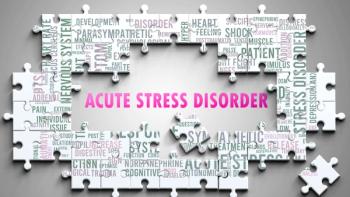
PTSD Treatment Shows Promise with Brexpiprazole, Sertraline Combination
Currently, the only medications approved by the FDA for PTSD are the selective serotonin reuptake inhibitors (SSRIs) sertraline and paroxetine. However, these medications don’t work for everyone.
It was found that those living with posttraumatic stress disorder (PTSD) who took a combination of Rexulti (brexpiprazole) and sertraline had much better improvements in their symptoms than those who took sertraline with a placebo, according to a new study published in JAMA Psychiatry.
People with PTSD experience four main symptoms: reliving the trauma, avoiding reminders of it, negative changes in mood or thinking and being easily startled or on edge.
The disorder is common in the U.S. and globally, with the highest risk associated to traumatic events involving violence, such as physical or sexual assaults. PTSD significantly affects people’s lives, leading to social and work challenges, poor quality of life and even suicide.
Currently, the only medications approved by the FDA for PTSD are the selective serotonin reuptake inhibitors (SSRIs) sertraline and paroxetine.
However, these medications don’t work for everyone. For example, in a previous analysis, about 42% of patients didn’t respond to the medications.
They are also less effective for specific symptoms such as reliving the trauma and heightened arousal.
As a result, doctors typically use multiple medications to treat a range of symptoms, highlighting the need for better treatment options
Rexulti is a medication used for other mental health conditions and has shown promise for PTSD. Early studies suggest that combining brexpiprazole with sertraline may effectively and safely reduce PTSD symptoms.
In this parallel-design, double-blind, randomized clinical trial, sponsored by Otsuka Pharmaceutical Development & Commercialization, researchers examined how well the combination of brexpiprazole and sertraline works for treating PTSD in adults compared to sertraline with a placebo. Researchers also reviewed its safety and efficacy.
The study took place at 86 locations in the U.S. from October 2019 to August 2023. Participants first took a placebo for one week, then, for the next 11 weeks, one group took a mix of two medicines: brexpiprazole (2-3 mg daily) and sertraline (150 mg daily). The other group took sertraline (150 mg daily) with a placebo.
To measure improvements, researchers used a tool called CAPS-5, which checks how severe 20 PTSD symptoms are. They also kept track of any side effects during the study.
Out of 1,327 participants screened, 416 joined the study and were split into the two groups. After 10 weeks, more folks in the brexpiprazole sertraline group (64%) finished the study compared to the sertraline and placebo group (56%).
The brexpiprazole + sertraline group showed a much bigger improvement in PTSD symptoms, as measured by CAPS-5 scores, compared to the placebo group.
On average, their scores dropped by 19.2 points, while the placebo group only dropped by 13.6 points, with a statistically significant difference.
Some side effects were reported, including nausea, fatigue and weight gain. These were slightly more common in the brexpiprazole + sertraline group but were generally manageable.
Fewer people in the brexpiprazole and sertraline group (3.9%) stopped the treatment due to side effects compared to the placebo group (10.2%).
This study has many strengths including participants with different types of trauma, making it more relatable of real-life PTSD patients. Most participants hadn’t used PTSD medications before, which helped received clear results.
Additionally, the study also used both doctor and patient reports to measure results.
Though there were limitations, including only monitoring U.S. participants, the study left results potentially only applying to a smaller audience.
The study also excluded people with depression, which is common in PTSD, making the findings less relevant for some patients.
Adding brexpiprazole to ongoing sertraline treatment works was also not tested, and the study didn’t show how long treatment should last. Researchers suggest further investigation is needed to understand long-term effects and safety.
Newsletter
Get the latest industry news, event updates, and more from Managed healthcare Executive.























